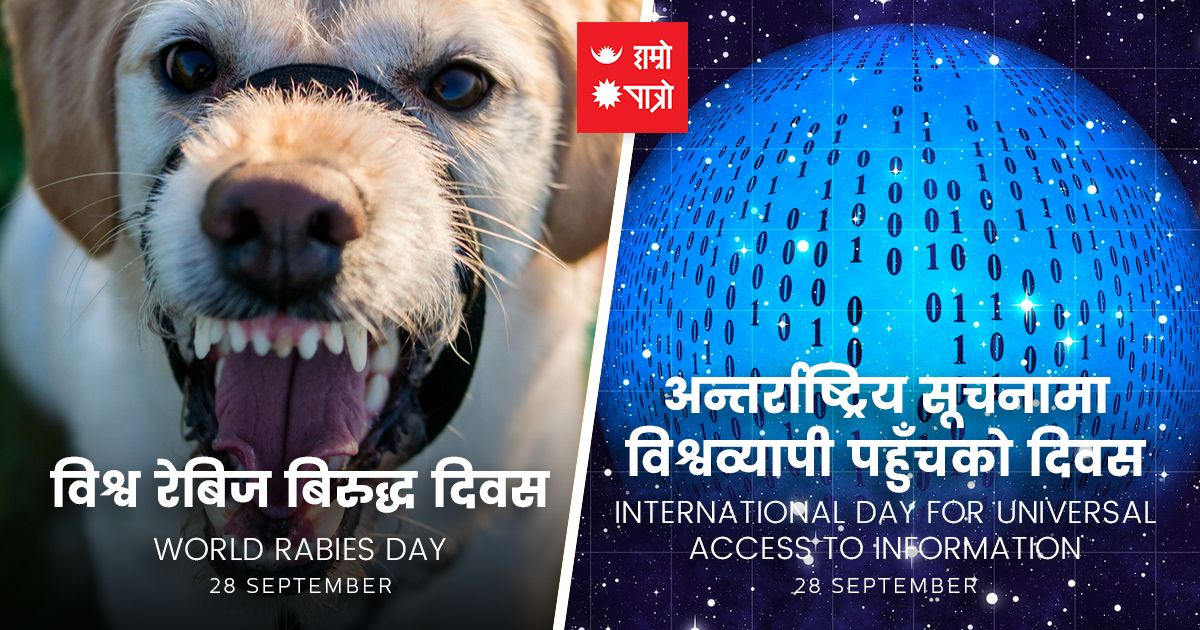
Rabies and Anti-Rabies day
Rabies is a virus called a neurotropic virus that causes rabies when it enters the body of an animal. September 28 is celebrated around the world as 'Anti-Rabies Day' by conducting various public awareness programs, and exchanging information about rabies, its prevention, and safety measures to be taken to prevent it. Most of us know about rabies and rabies is a disease that has been around for a long time with human civilization. The Egyptian civilization in the northeastern African region has a history of rabies dating back to 4300 years ago.
Aristotle and Rabies
On the other hand, a note written by the philosopher Aristotle 2300 years ago also mentions the fact that a rabies dog bites a person or a dog bites another animal, and people come in contact with those animals. This disease, which is transmitted by rabies, has posed a great challenge to human history and medical science. Nowadays, rabies can be cured promptly by using modern medical methods and vaccines, even after being bitten by such an animal, by injections, but if it is delayed and the virus is more effective, rabies can be fatal.
Agriculture and animal husbandry are the most regular occurrences of human civilization, and the transmission of rabies was most prevalent in the 20th century, in settlements, communities, and cultures where animal contact and animal presence were widespread. With the onset of the 20th century, the incidence of rabies in developed countries and Central Europe most affected by rabies has been declining dramatically. The main reason for this is public awareness and vaccination against rabies. Now rabies infection is negligible in developed countries but in developing countries like ours, rabies infection is seen and heard even if it is sporadic. Stray dogs are found in every chowk and intersection in the main cities of Nepal.
The unmanaged presence of these dogs has increased the risk of people being bitten and injured, as well as the possibility of rabies infection.
Importance of September 28th
Authorized government bodies and stakeholders need to pay attention to the availability of anti-rabies vaccine and post-exposure prophylaxis (PEP) injection at government health posts after the rabies virus enters the body. September 28 is also the day of the death of Louis Pasteur, a French microbiologist, and he is remembered for his hard work in finding a vaccine against rabies and saving many lives.
Vaccinating pets, especially dogs, against rabies promptly, is necessary. Even if infected, special care must be taken to ensure that they do not come into contact with other infected animals. Today, rabies can be eradicated from the world if we are all aware of the potential for infection and health care and services, therapeutic and preventive methods.
he theme of this year's Rabies Day is Rabies: One Health, Zero Deaths. This year aims to make everyone's health uniform and zero deaths due to rabies.
International Day for Universal Access to Information
Recognizing the significance of access to information, the 74th UN General Assembly proclaimed 28 September as the International Day for Universal Access to Information (IDUAI) at the UN level in October 2019. The day had been proclaimed by the UNESCO General Conference in 2015, following the adoption of the 38 C/Resolution 57 declaring 28 September of every year as International Day for Universal Access to Information (IDUAI).
If information is power, access to information is empowerment.
Finland and Sweden first agreed in their constitutions in 1766 to exchange information, believing that human development was possible only if everyone had access to information. It is because of the idea of bringing about this momentous change that people in the corners of the world now know the news of the moon and Mars and everywhere around the globe.
The theme of the Global Conference on Universal Access to Information 2022 is “Artificial Intelligence, e-Governance and Access to Information".
With the expansion of information and communication technology, good governance, and prosperity, we will be able to live in an equal and transparent society. In particular, equal access to information and communication technology is considered essential for making education accessible to all and for facilitating online education and open learning. Certainly, the vision of modern education in the country will not be fulfilled without access to information technology in education.
At present, the Government of Nepal is emphasizing the need to increase investment in the development, expansion, and operation of information and communication technology, giving priority to this sector and allocating the budget. UNESCO is working to build a more transparent society by 2030 by making access to information more effective. No one can make any decision without access to information. Good luck to all of us on this important day.
Suyog Dhakal
Liked by: